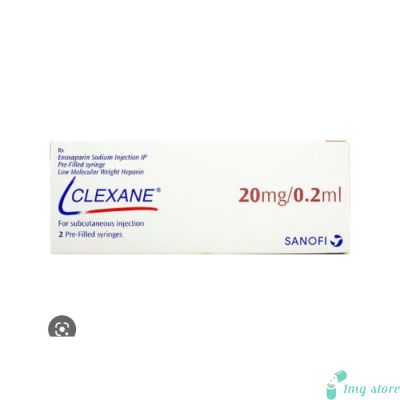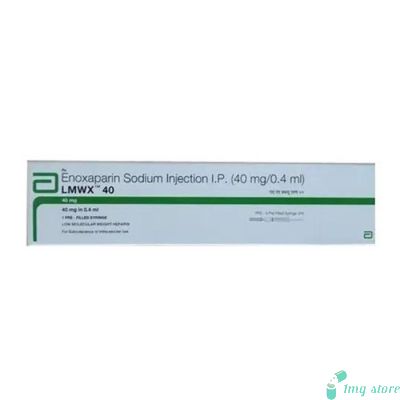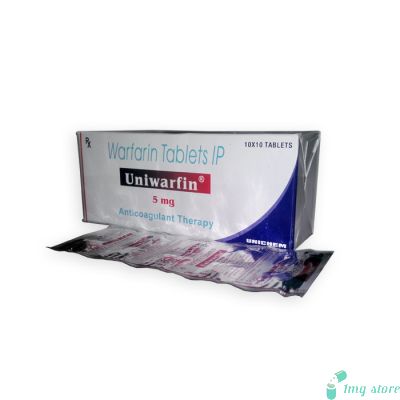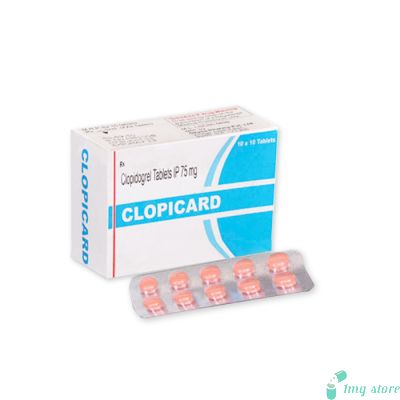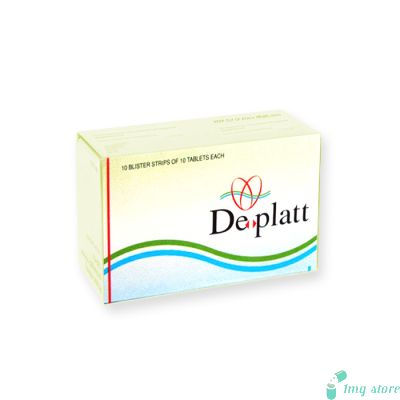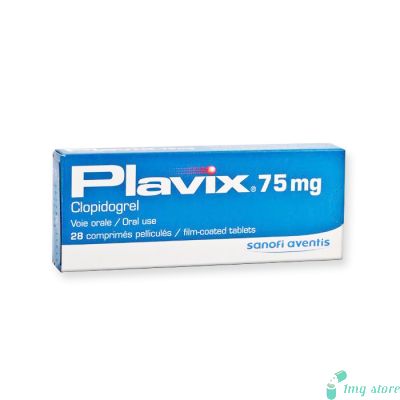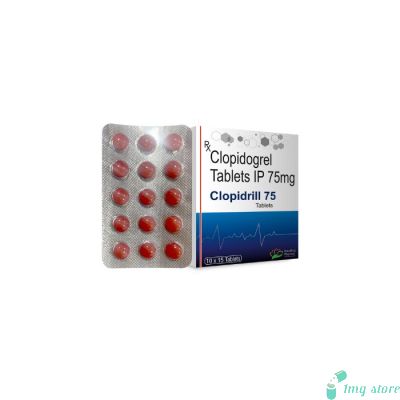Loparin Injection (Enoxaparin)
Loparin Injection (Enoxaparin) is a medication that falls under the category of anticoagulants or blood thinners. It is utilized to prevent and treat detrimental blood clots. Another trade name for enoxaparin is Lovenox.
Enoxaparin Injection (Loparin): An Effective Anticoagulant for Blood Clot Prevention and Treatment
Loparin, also known as Enoxaparin, is a medication that belongs to the class of anticoagulants, specifically low molecular weight heparins. It is commonly prescribed to prevent and treat blood clotting disorders. Enoxaparin is available in an injectable form and is widely recognized under the brand name Lovenox. Enoxaparin injection contains enoxaparin sodium, an active ingredient that helps inhibit the formation of blood clots. It is administered subcutaneously (under the skin) and is available in various strengths.
Enoxaparin sodium injection is typically prescribed by healthcare professionals to prevent Blood Clots in patients undergoing certain medical procedures, such as hip or knee replacement surgery, or those with a high risk of developing deep vein thrombosis (DVT) or pulmonary embolism (PE). Additionally, it may be used to treat existing blood clots in conditions like deep vein thrombosis or unstable angina.
Enoxaparin Sodium Injection Dosage
The dosage of enoxaparin sodium injection varies depending on the patient's medical condition, weight, and other factors. It is essential to follow the prescribed dosage and administration instructions provided by your healthcare provider to ensure optimal efficacy and safety. It is available as enoxaparin sodium injection 20 mg, enoxaparin sodium injection 40 mg, and enoxaparin sodium injection 60 mg strength. This lower dosage option may be prescribed in certain situations, and again, it is crucial to adhere to the specific dosage instructions provided by your healthcare professional. Please consult your healthcare provider or pharmacist for more detailed information about Enoxaparin Injection (Loparin), its usage, dosage, and any potential side effects or precautions associated with its use.
Benefits of Enoxaparin Injection (Loparin) with regards to heart and blood pressure:
Anticoagulant Effect: Enoxaparin injection helps prevent the formation of blood clots, reducing the risk of complications such as deep vein thrombosis (DVT), pulmonary embolism (PE), and stroke.
Post-Surgical Protection: Enoxaparin is commonly prescribed after certain surgeries, such as hip or knee replacement, to prevent blood clots from forming in the legs or lungs.
Cardiovascular Conditions: Enoxaparin may be used in the treatment of unstable angina, a condition characterized by reduced blood flow to the heart. It helps prevent the formation of blood clots, reducing the risk of heart attack.
High Blood Pressure: Enoxaparin does not directly affect blood pressure levels. However, it can be beneficial for individuals with high blood pressure who have an increased risk of blood clots. By preventing clot formation, it may reduce the risk of complications associated with hypertension, such as stroke or heart attack.
The Convenience of Use: Enoxaparin is available as an injectable medication, making it easy to administer. It is typically self-administered once or twice daily, depending on the prescribed dosage and treatment duration.
Established Safety Profile: Enoxaparin has been widely used for many years and has an established safety profile when used as prescribed. However, it is important to follow the guidance of a healthcare professional and report any adverse effects promptly.
Safeguards to consider while utilizing Enoxaparin Injection (Loparin):
- Enoxaparin is an anticoagulant, which means it can increase the risk of bleeding. It is important to inform your healthcare provider about any existing bleeding disorders, recent surgeries, ulcers, or other conditions that may increase the risk of bleeding.
- Some individuals may be allergic to Enoxaparin or other components of the medication. If you experience symptoms such as rash, itching, swelling, or difficulty breathing after using Enoxaparin, seek immediate medical attention.
- Individuals with kidney or liver problems may require dosage adjustments or close monitoring while using Enoxaparin. It is essential to inform your healthcare provider about any pre-existing conditions affecting these organs.
- Enoxaparin (Lovenox) should be used with caution in individuals who are scheduled to undergo spinal or epidural anesthesia or those who have recently undergone a spinal puncture. This is because it may increase the risk of bleeding in the spinal area.
- Enoxaparin may be prescribed during pregnancy or breastfeeding if the benefits outweigh the potential risks. However, it is crucial to consult with a healthcare professional to evaluate the individual situation and determine the appropriate course of action.
- Regular monitoring of blood tests, including platelet counts and coagulation parameters, may be necessary while using Enoxaparin. Follow-up visits with your healthcare provider are important to assess the effectiveness and safety of the treatment.
Some of the Applications of Enoxaparin Injection (Loparin):
Prevention of Blood Clots: Enoxaparin is commonly used to prevent blood clots in patients undergoing certain surgeries, such as hip or knee replacement. It helps reduce the risk of deep vein thrombosis (DVT) and pulmonary embolism (PE).
Treatment of Blood Clots: Enoxaparin (Lovenox) is also used in the treatment of existing blood clots, such as deep vein thrombosis (DVT) or unstable angina. It helps prevent the clot from getting larger and reduces the risk of complications.
Management of Unstable Angina: In Heart and Blood Pressure, Enoxaparin may be used in the management of unstable angina, a condition where there is reduced blood flow to the heart. It helps prevent the formation of blood clots, reducing the risk of heart attack.
Prevention of Clots in High-Risk Individuals: Enoxaparin is prescribed to individuals with a high risk of developing blood clots due to medical conditions such as cancer or prolonged immobilization. It helps prevent clot formation and related complications.
Anticoagulant Use during Pregnancy: Enoxaparin may be prescribed during pregnancy in certain situations, such as high-risk pregnancies or those with a history of blood clotting disorders. It helps reduce the risk of blood clots and their associated complications.
Must know the Secondary Effects of Enoxaparin Injection (Loparin) may include:
- Bleeding or bruising.
- Injection site reactions.
- Allergic reactions.
- Thrombocytopenia (low platelet count).
- Osteoporosis (with long-term use).
- Increased liver enzymes.
- Hypersensitivity reactions.
- Anemia.
- Nausea or vomiting.
- Headache or dizziness.
Q1: Can I administer Enoxaparin Injection (Loparin) on my own at home?
A1: Yes, Enoxaparin can be self-administered at home after proper training and guidance from a healthcare professional.
Q2: Is it safe to use Enoxaparin while breastfeeding?
A2: The use of Enoxaparin during breastfeeding should be discussed with a healthcare provider, considering the potential benefits and risks for both the mother and the baby.
Q3: Are there any dietary restrictions while using Enoxaparin?
A3: No specific dietary restrictions are necessary while using Enoxaparin. However, it is important to maintain a healthy and balanced diet.
Q4: Can Enoxaparin interact with herbal supplements?
A4: Enoxaparin can potentially interact with certain herbal supplements, such as ginkgo biloba or garlic. It is important to inform your healthcare provider about any herbal supplements you are taking.
Q5: Is there a risk of rebound blood clotting after discontinuing Enoxaparin?
A5: After discontinuing Enoxaparin, the risk of rebound blood clotting is generally low. However, it is important to follow your healthcare provider's instructions and any prescribed follow-up treatments to ensure continued protection against blood clots.
Must Known Drug cooperation while utilizing Enoxaparin Injection (Loparin):
Nonsteroidal Anti-Inflammatory Drugs (NSAIDs): NSAIDs, such as ibuprofen or naproxen, can increase the risk of bleeding when used concomitantly with Enoxaparin. It is important to inform your healthcare provider if you are taking NSAIDs to determine the appropriate management plan.
Anticoagulants: Concurrent use of other anticoagulants, such as warfarin or heparin, with Enoxaparin (Lovenox), can potentiate the anticoagulant effect and increase the risk of bleeding. Close monitoring of blood clotting parameters is essential if multiple anticoagulants are prescribed.
Antiplatelet Drugs: Certain antiplatelet medications, like aspirin or clopidogrel, can also increase the risk of bleeding when used together with Enoxaparin. Your healthcare provider should be informed if you are taking any antiplatelet drugs to ensure appropriate monitoring and management.
Selective Serotonin Reuptake Inhibitors (SSRIs): Some SSRIs, commonly used as antidepressants, may increase the risk of bleeding when combined with Enoxaparin. It is important to discuss the use of SSRIs with your healthcare provider if you are prescribed Enoxaparin.
Thrombolytic Agents: Thrombolytic medications, such as alteplase or streptokinase, are used to dissolve blood clots. Concurrent use of Enoxaparin with these agents may increase the risk of bleeding. The combination should only be used under careful medical supervision.
| Manufacturer | : | Intas Pharma, India |
| Equivalent Brand | : | Lovenox |
| Generic Search | : | Enoxaparin Sodium Injection |









